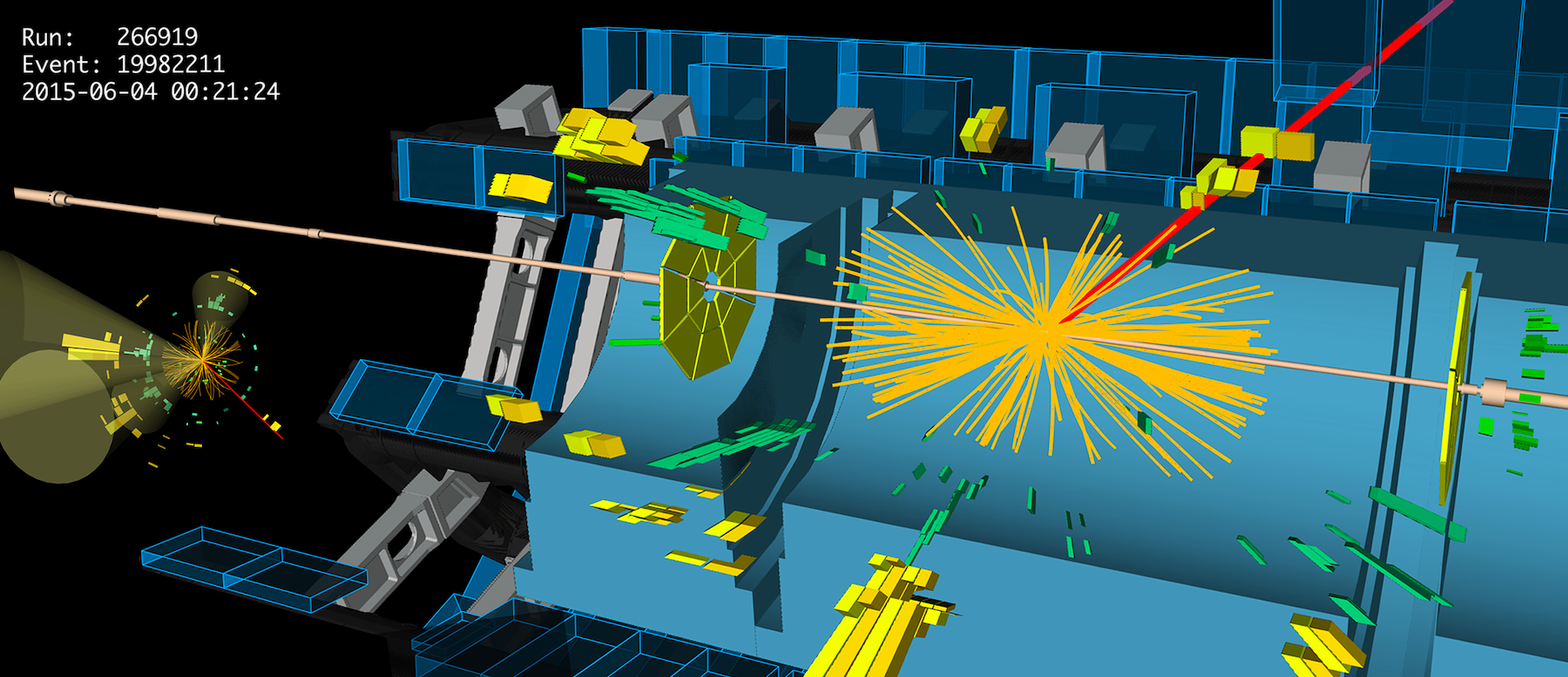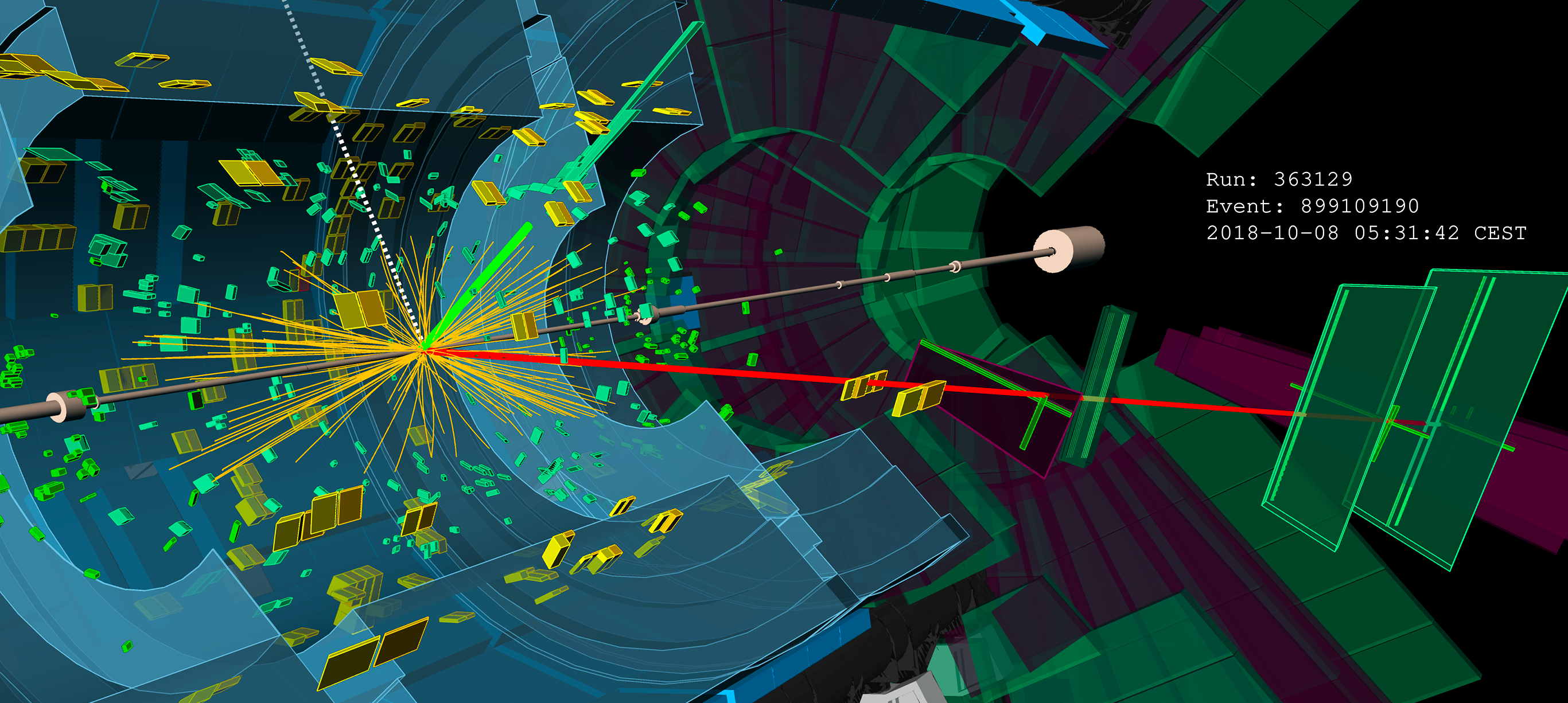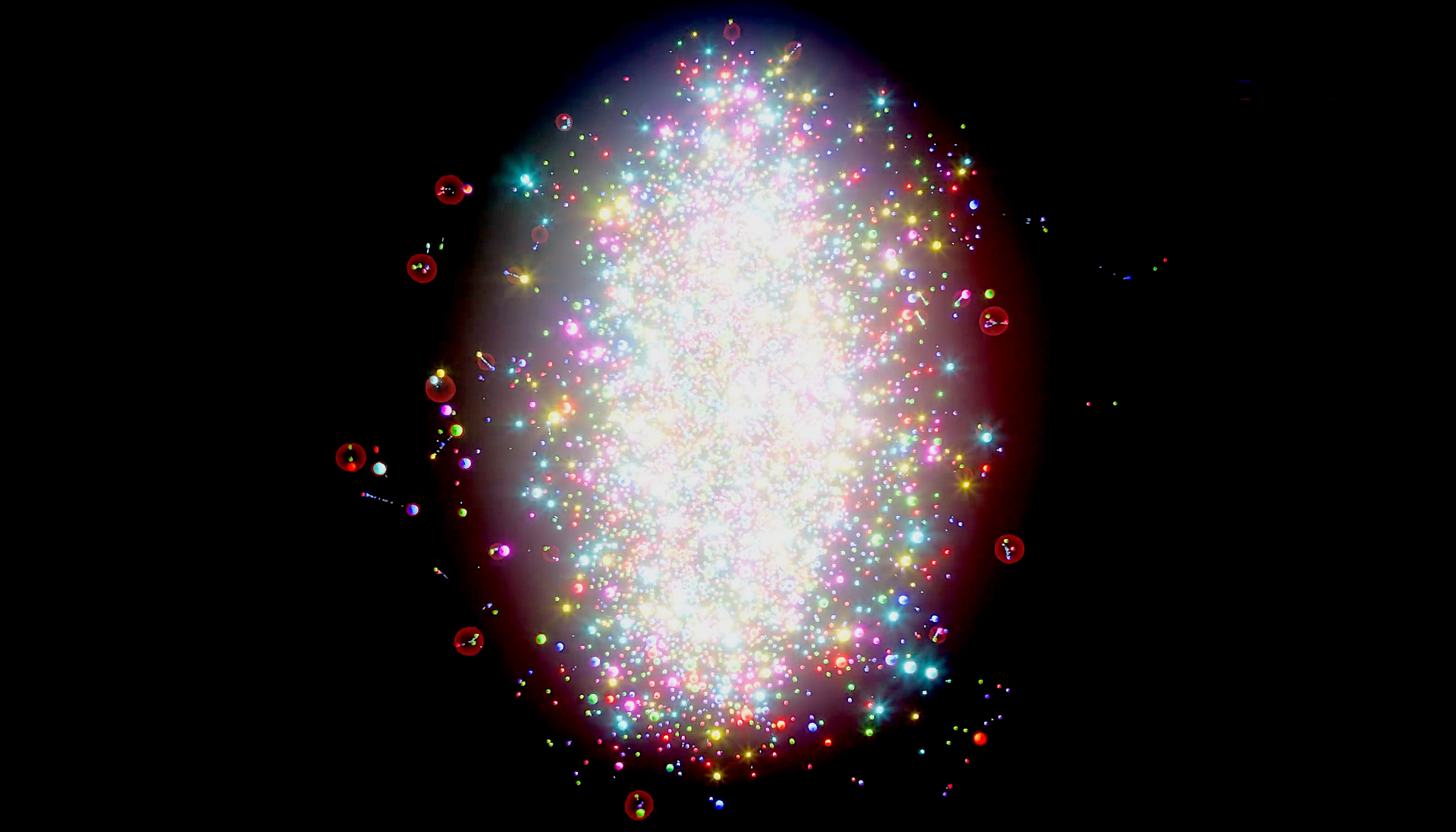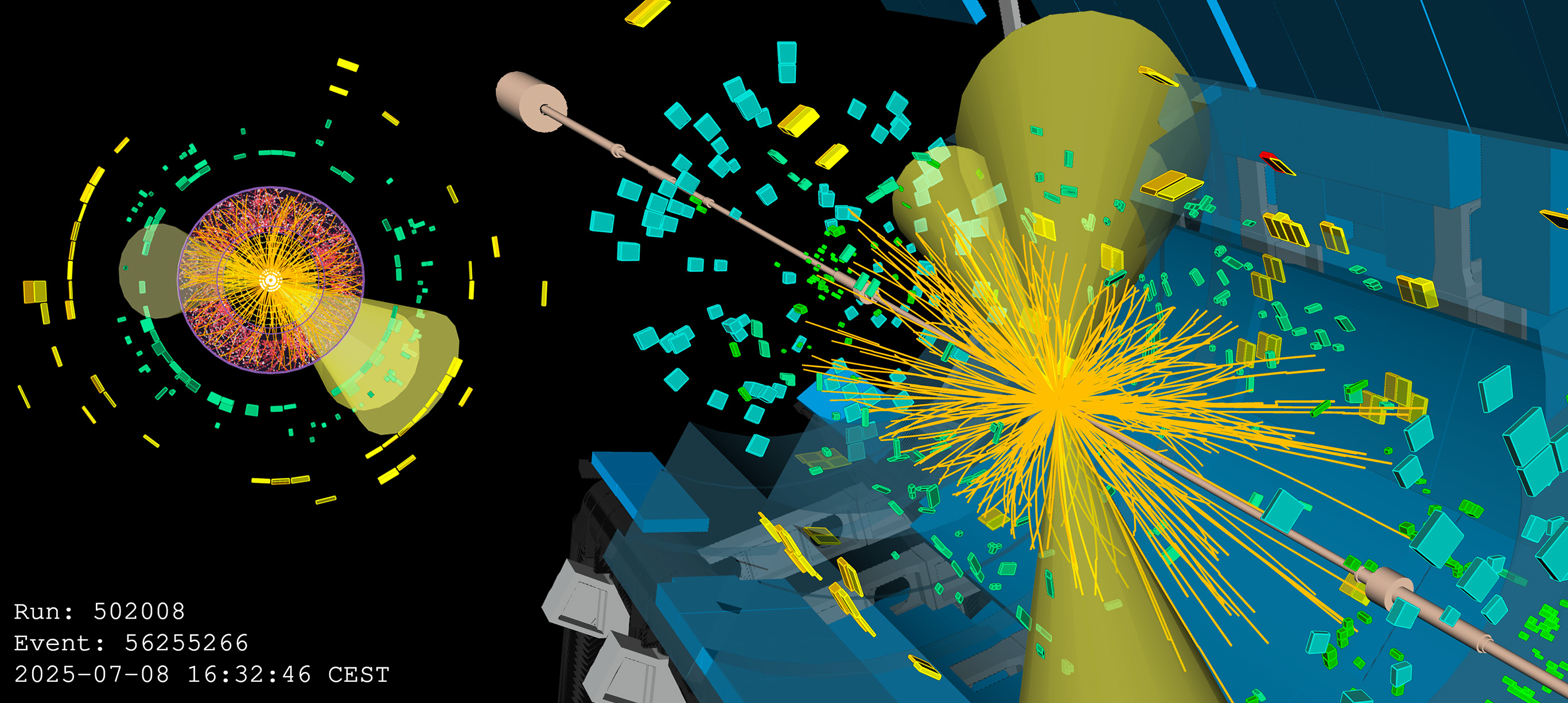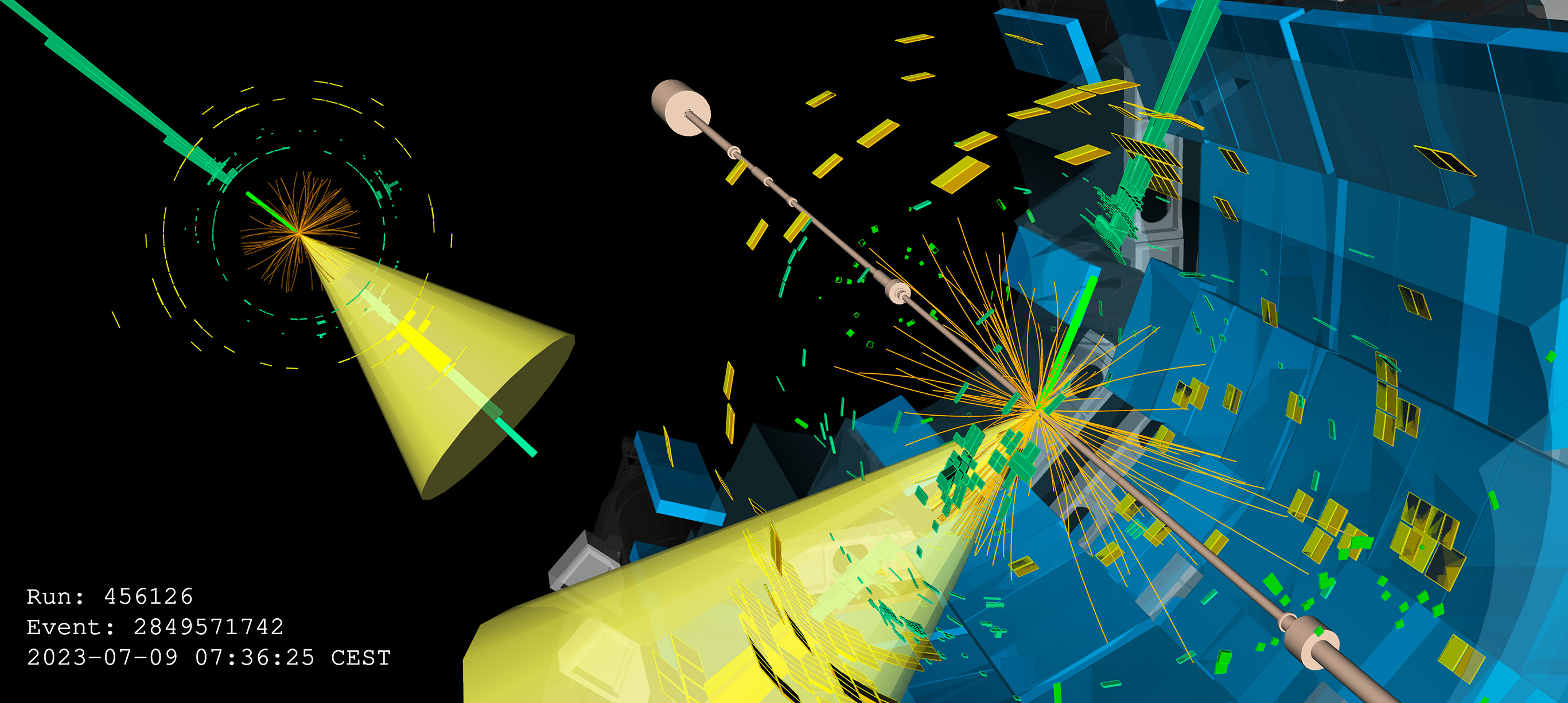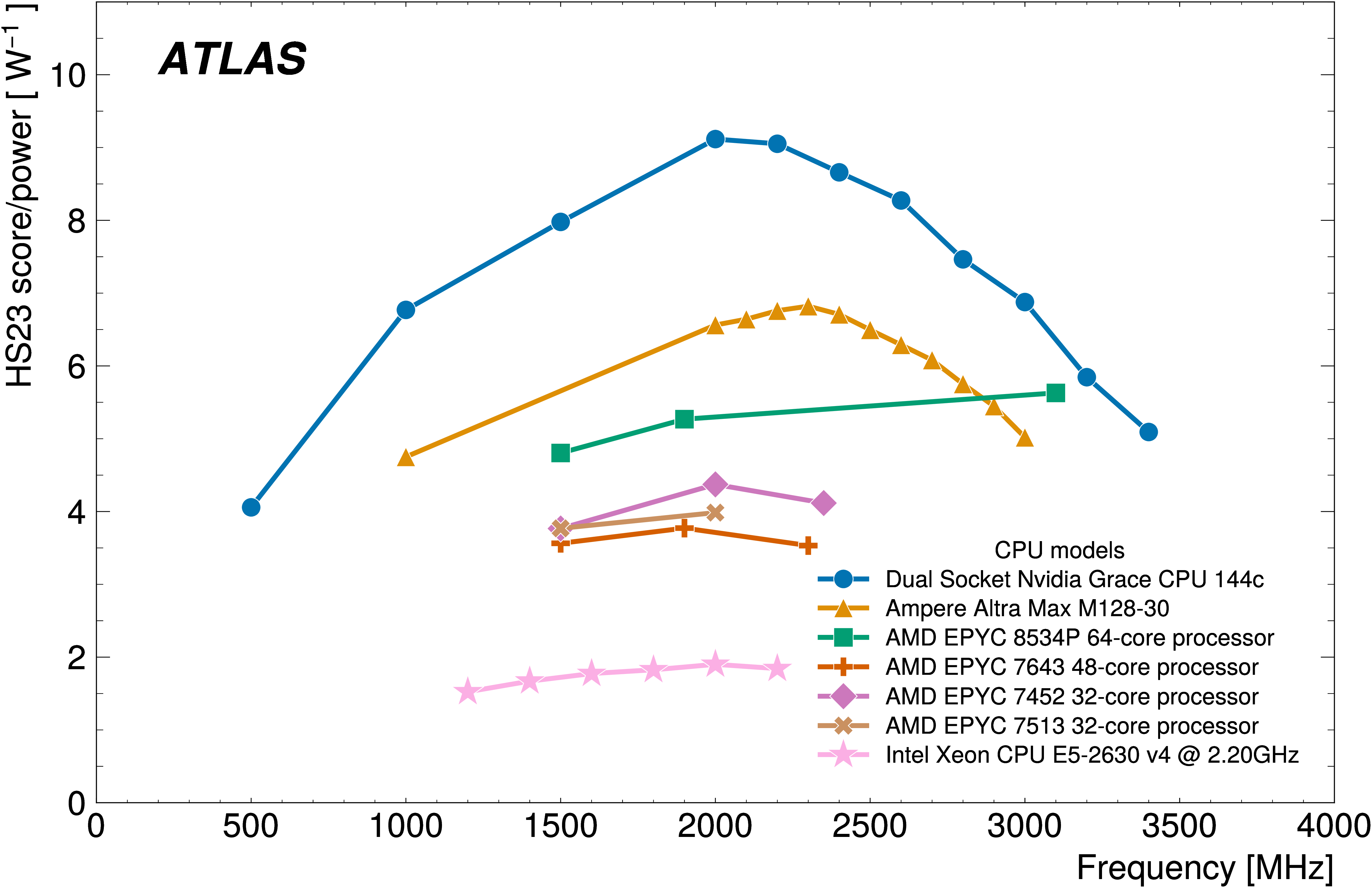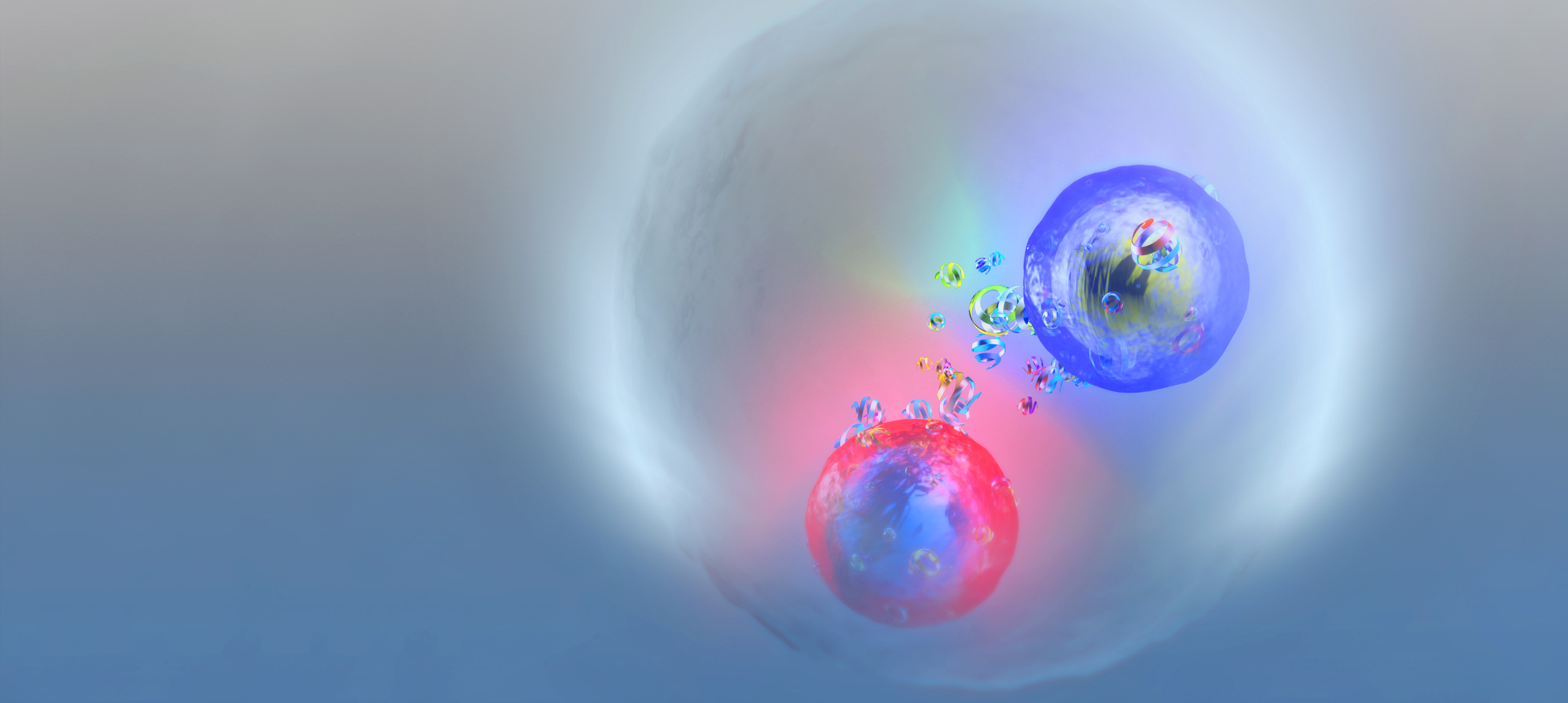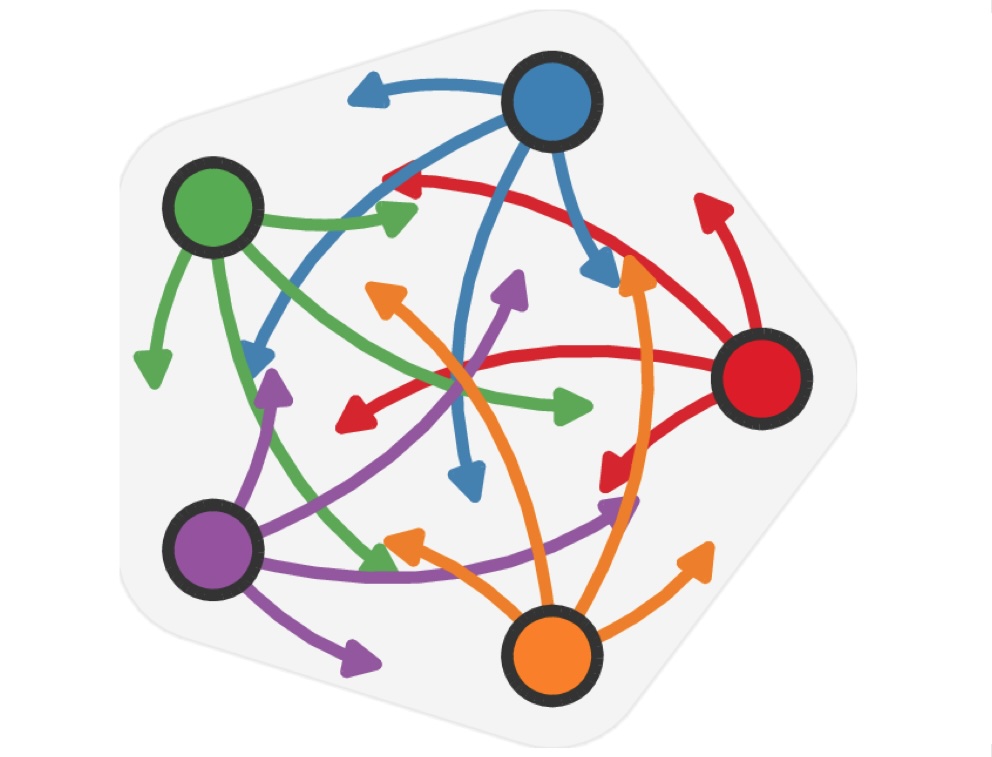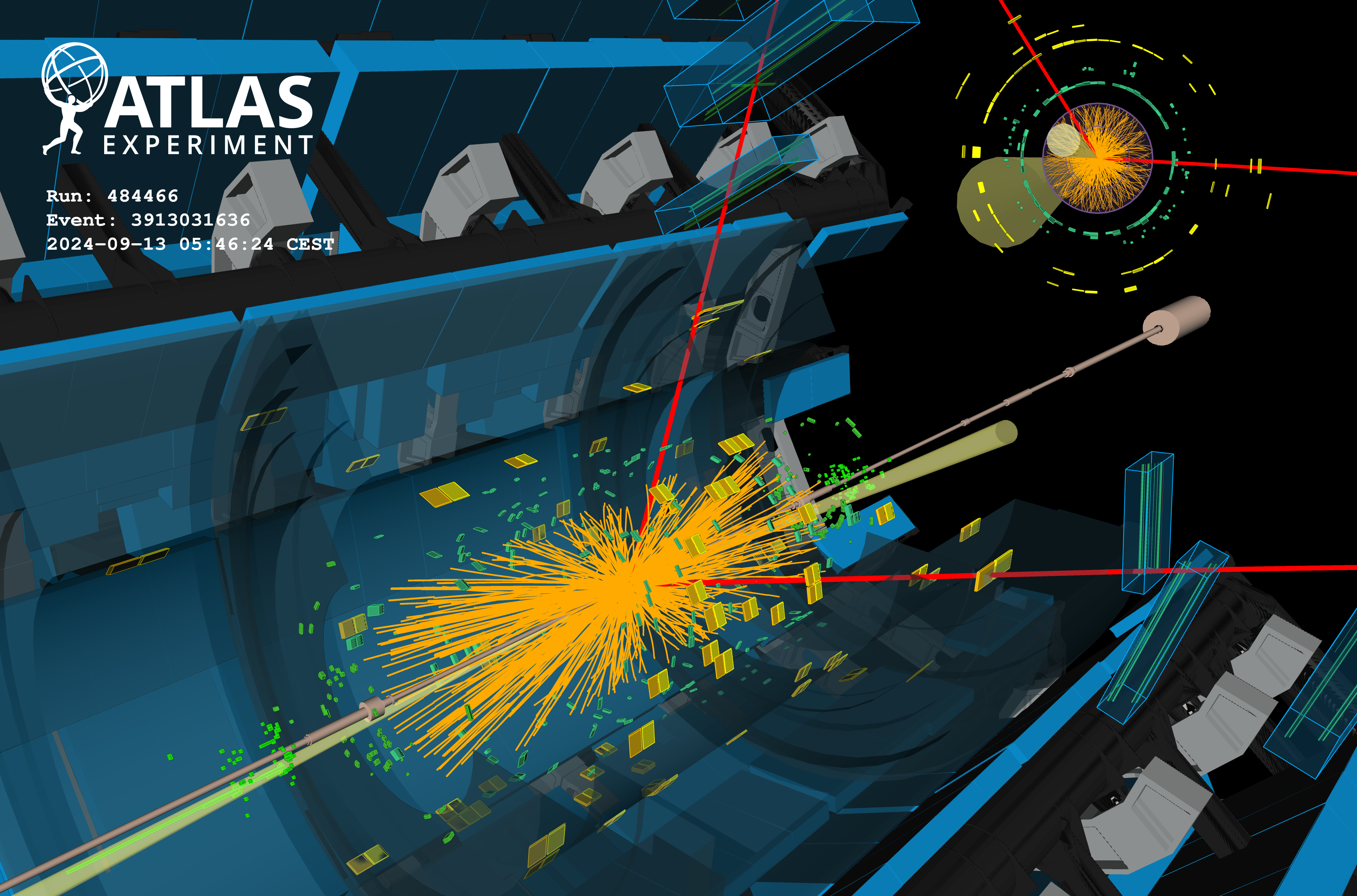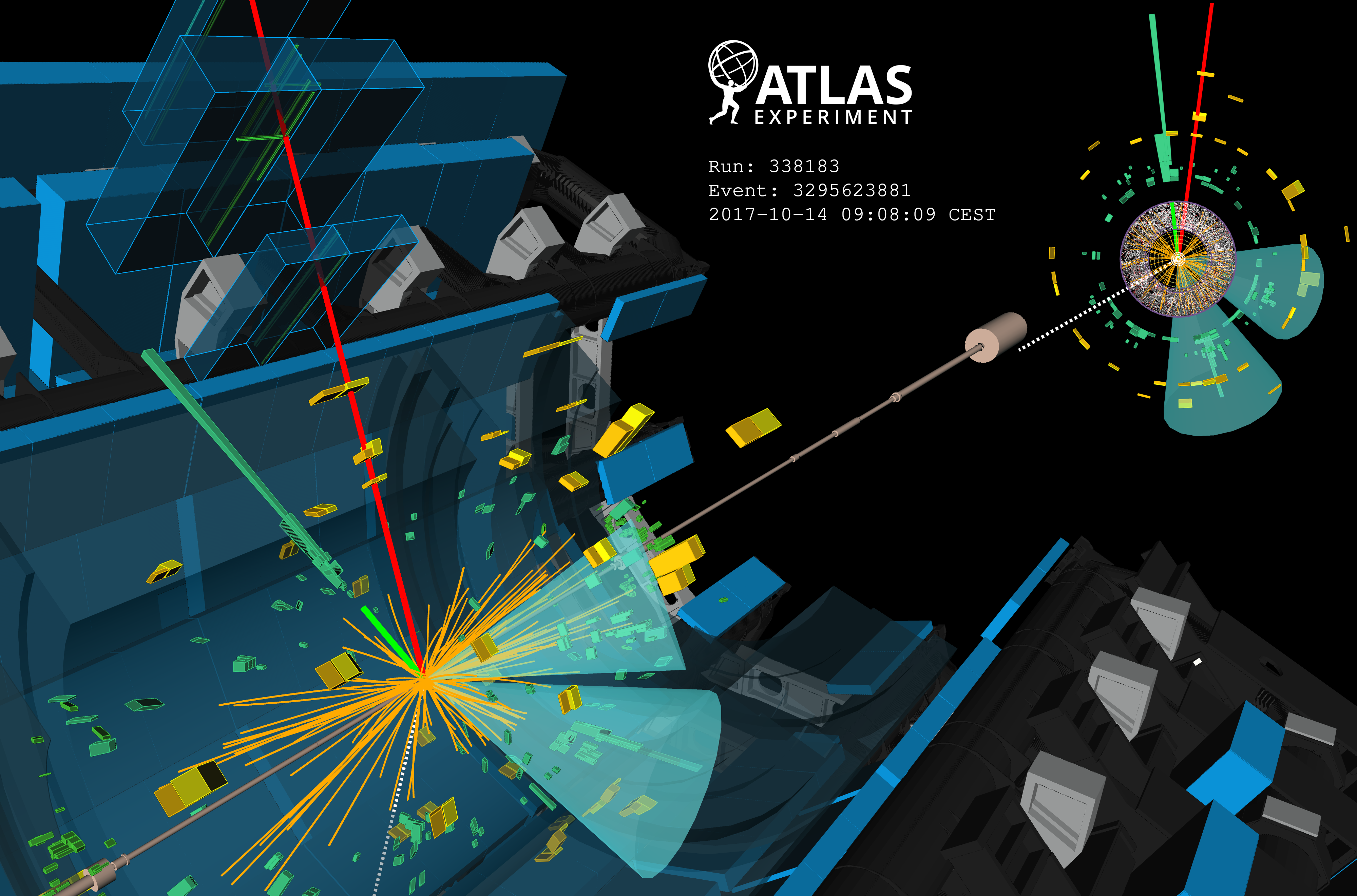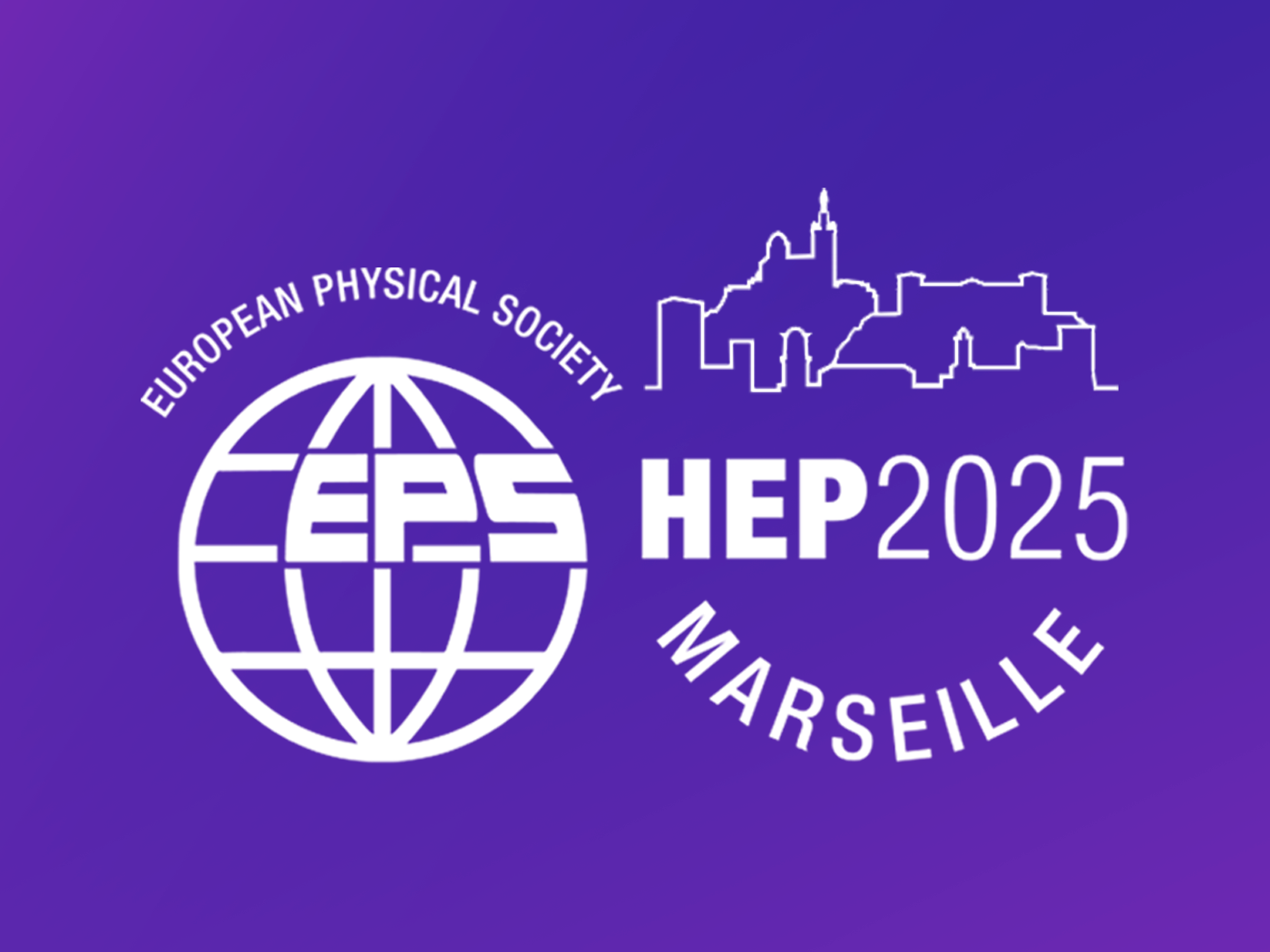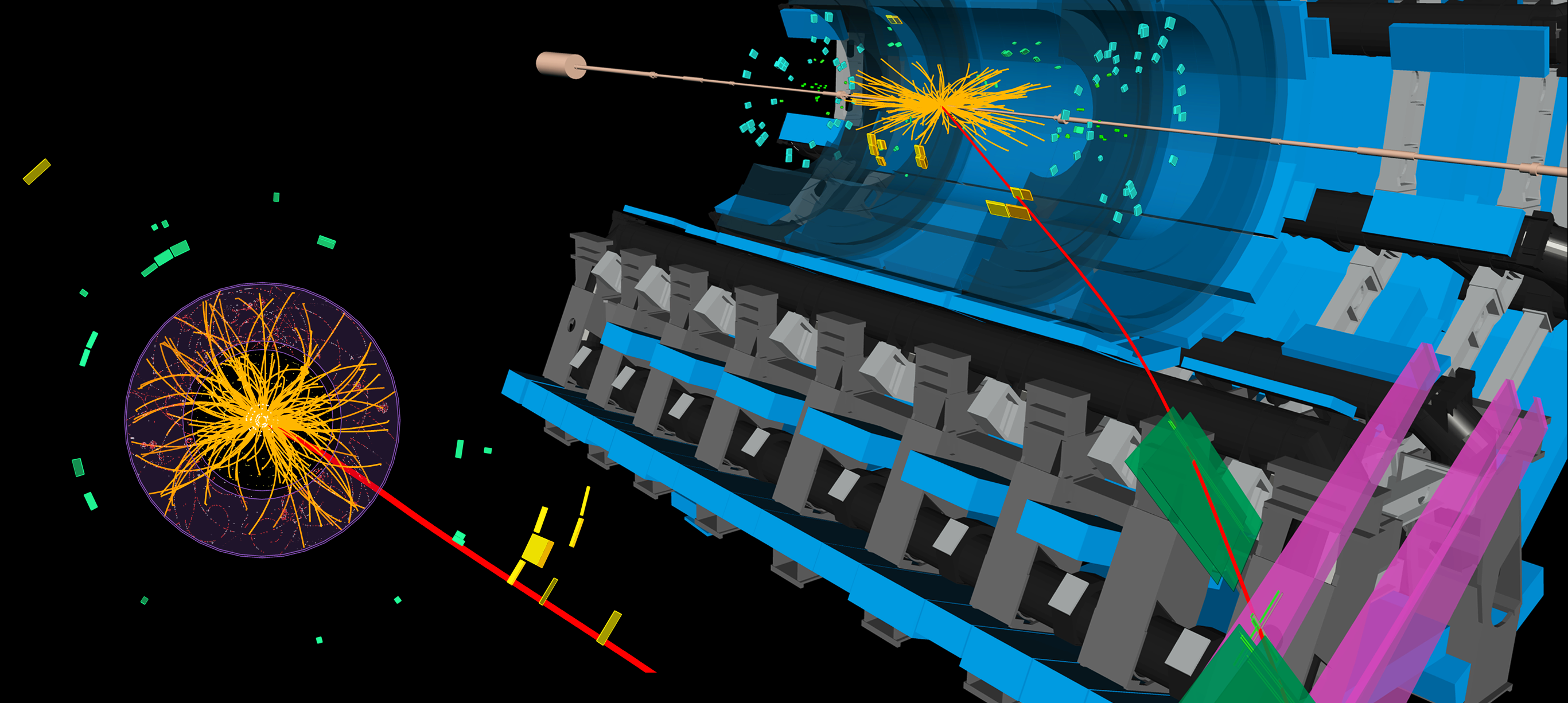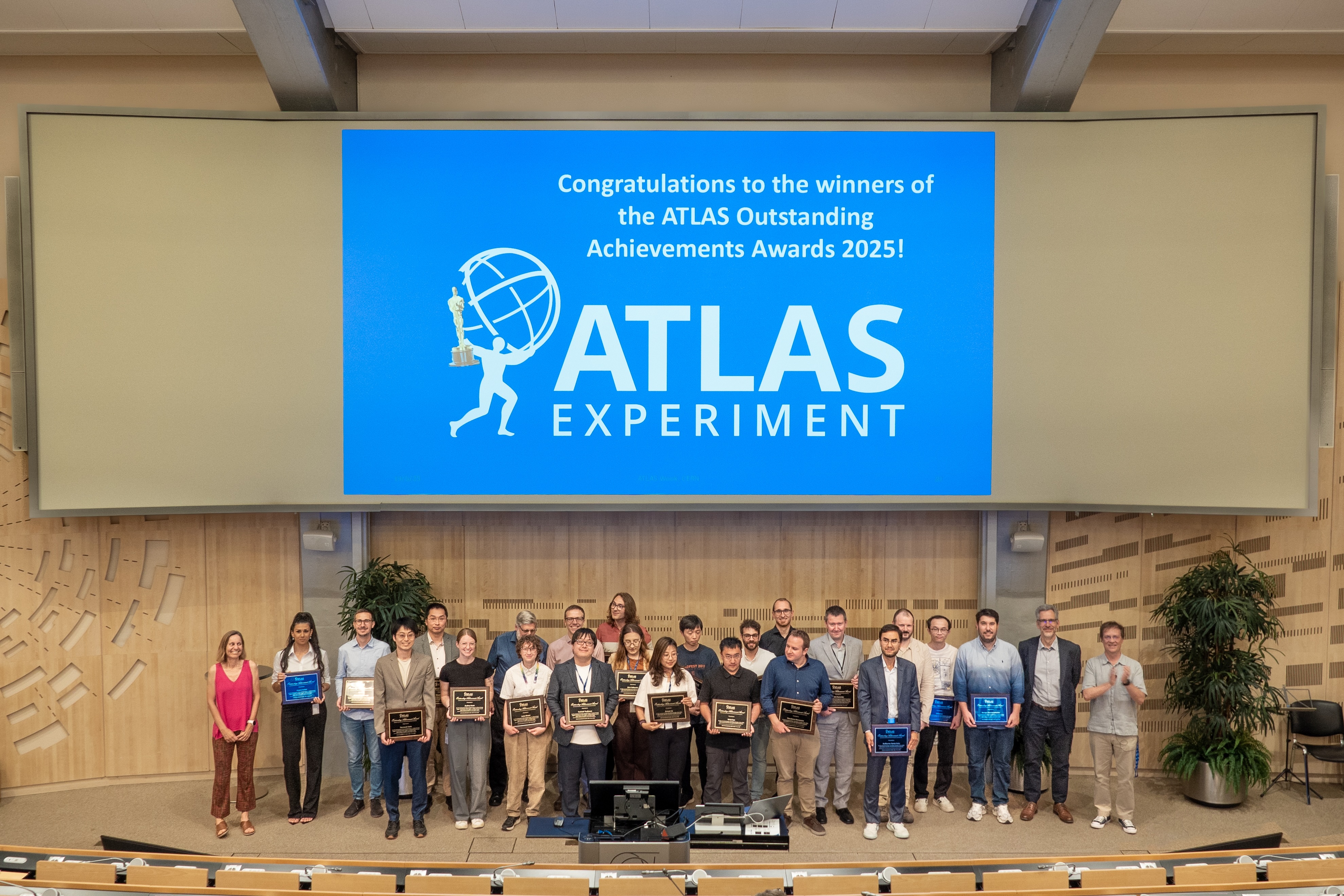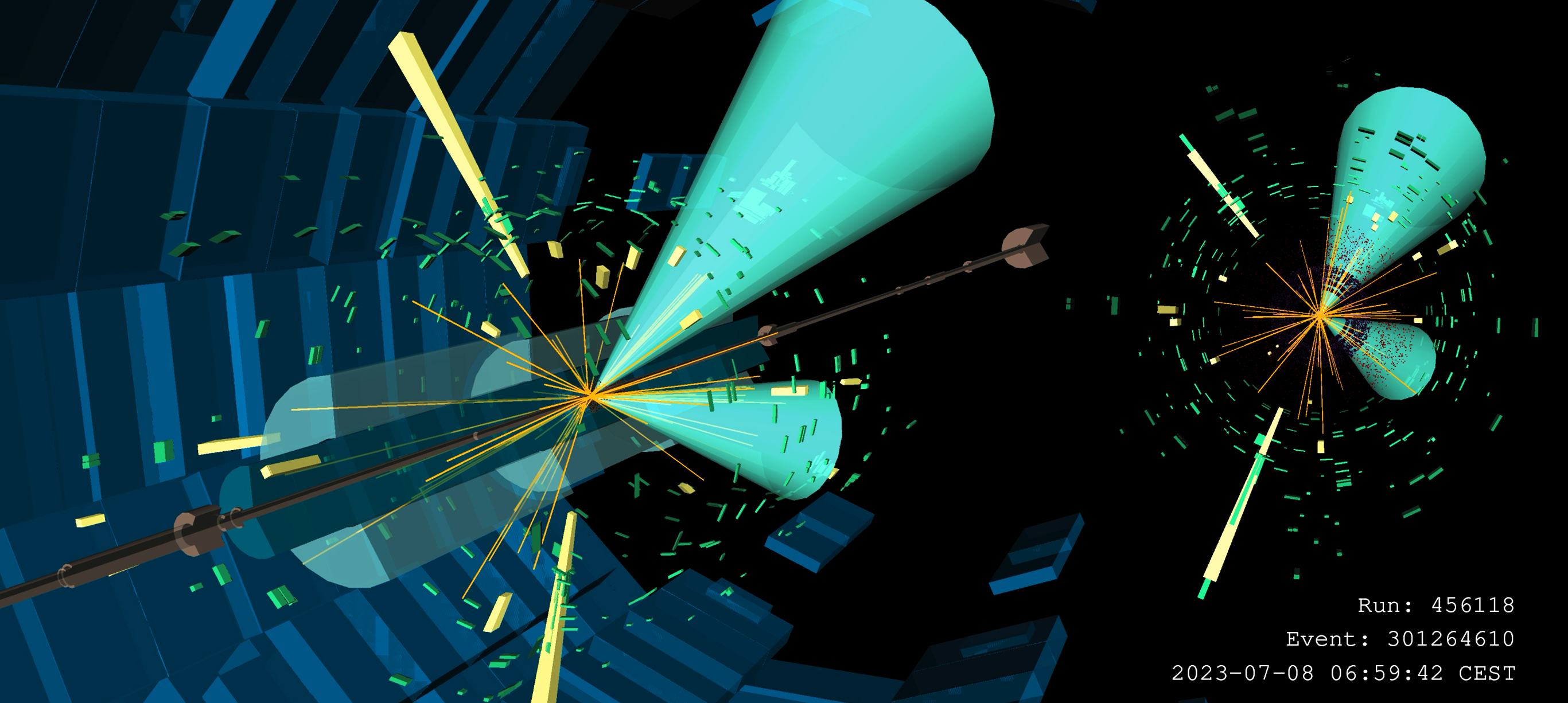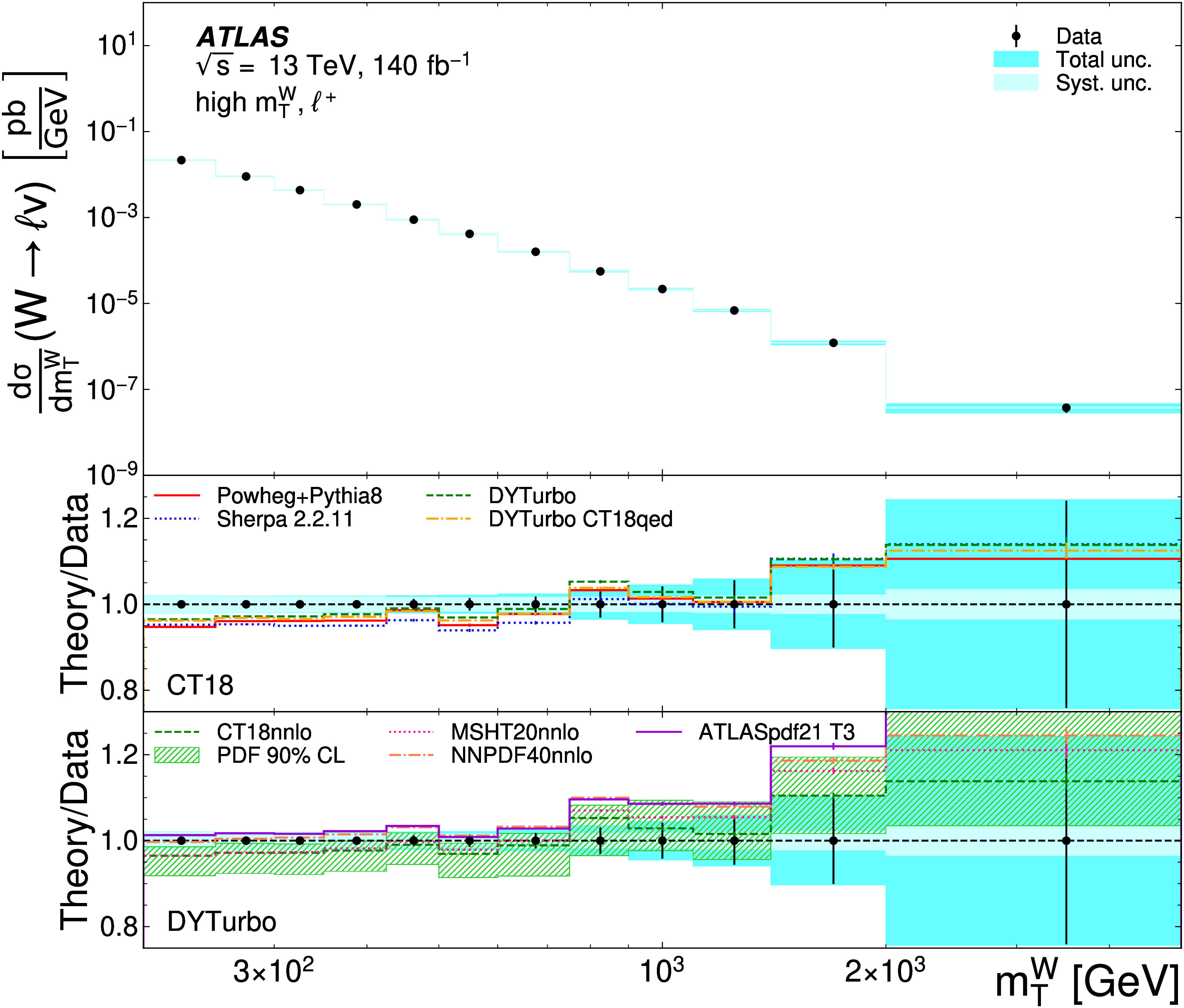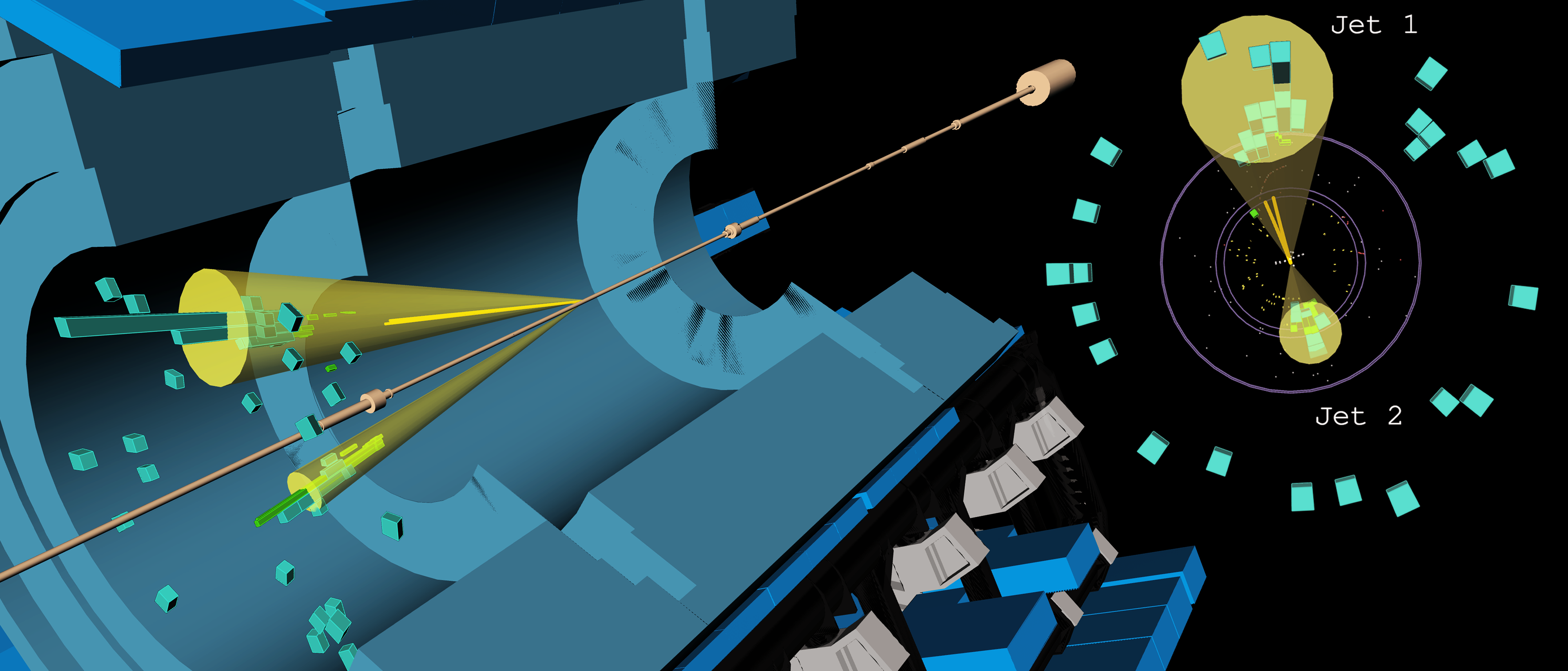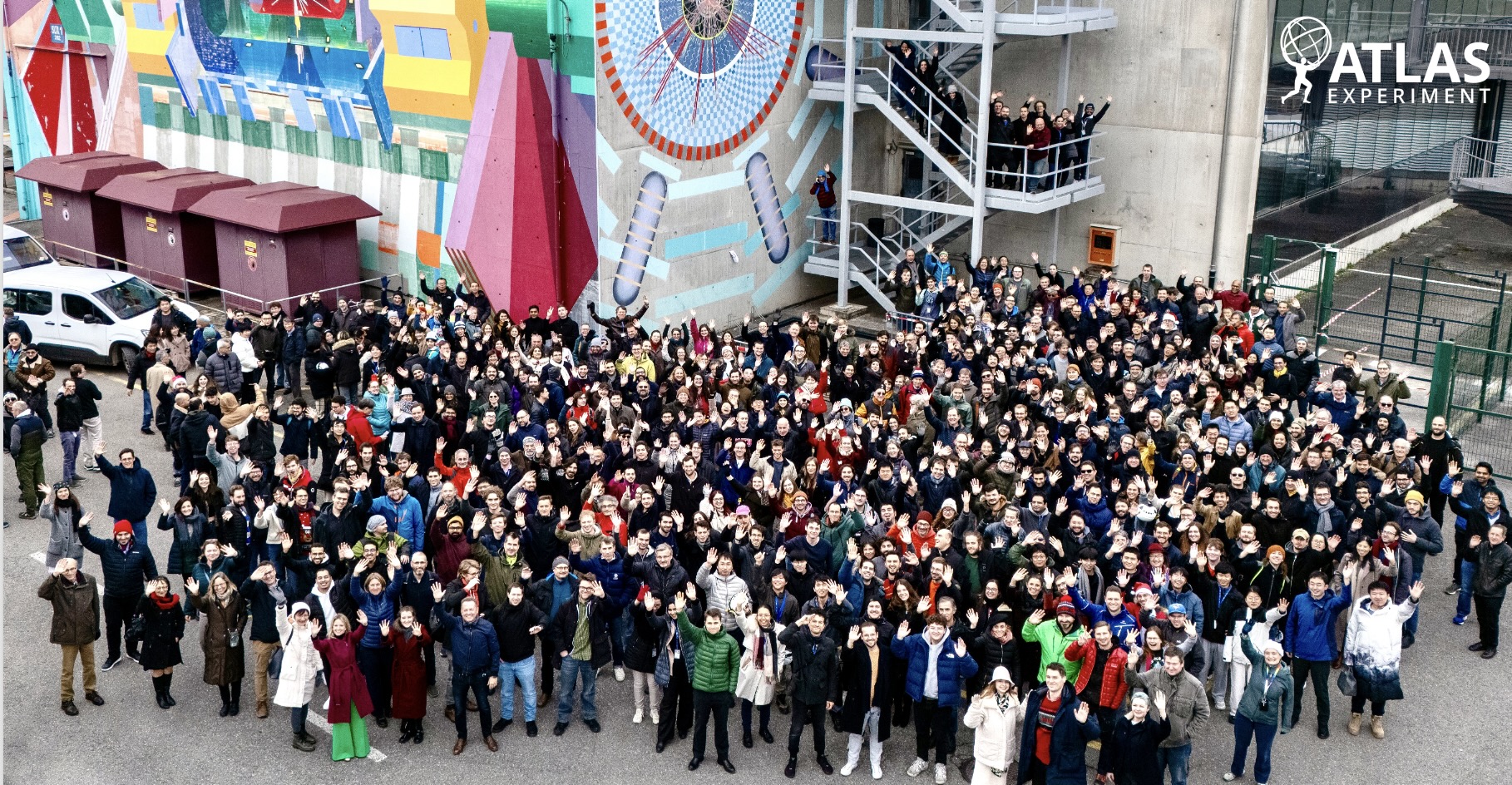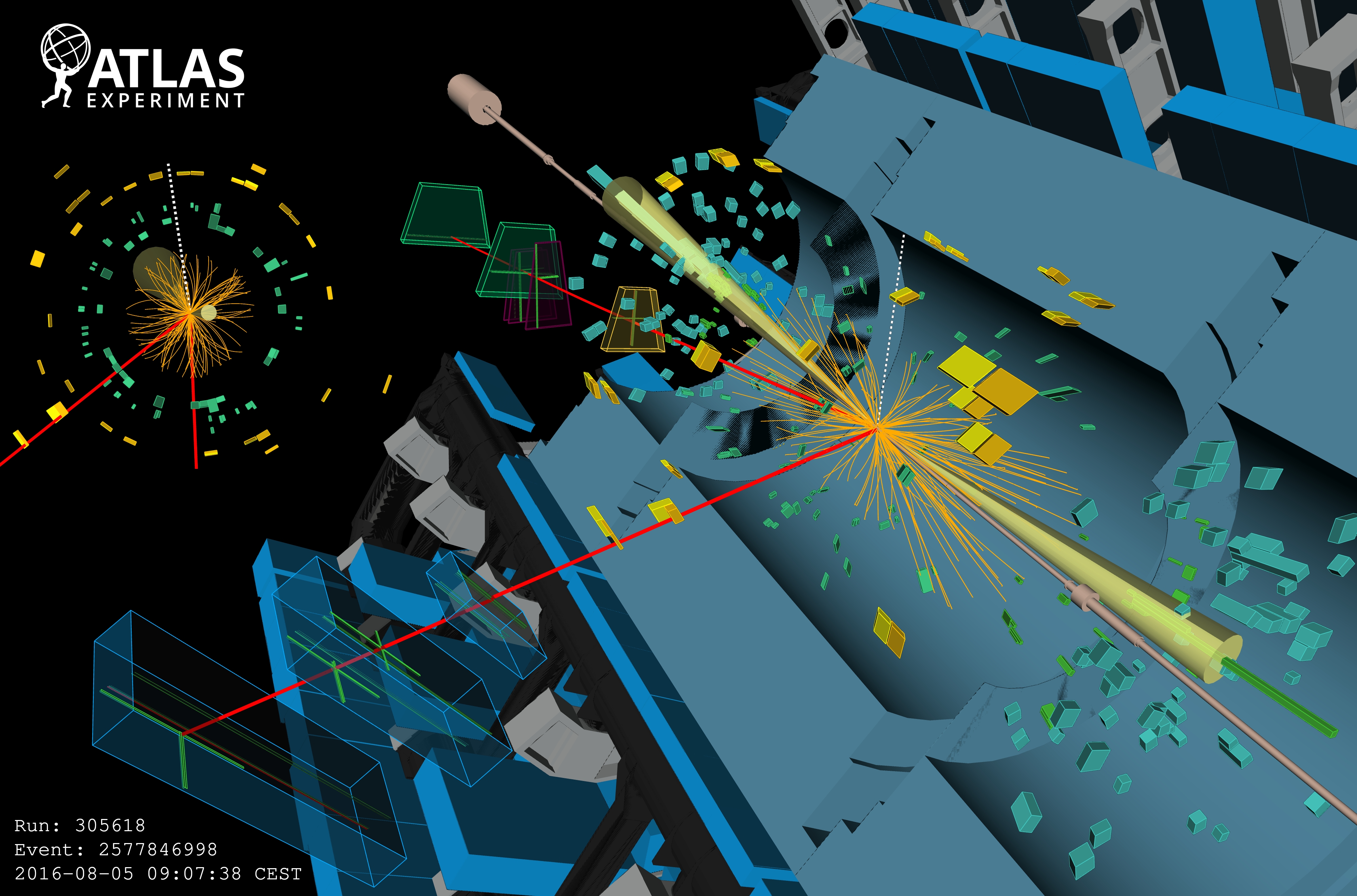Searching for flavourful violations of the Standard Model
Lidia Dell'Asta, Jacob Julian Kempster and Daniele Zanzi describe how the ATLAS Collaboration is probing forbidden flavour-changing and lepton-flavour-violating processes as powerful tests of the Standard Model’s limits.
Feature |
Shining light on the Weak force: ATLAS observes WWγ production
The ATLAS Collaboration reports its first observation of WWγ production – a rare process involving the simultaneous production of two W bosons and a photon.
Shape-shifting collisions probe secrets of early Universe
The first high-energy collisions between light nuclei at the Large Hadron Collider confirm the unusual “bowling-pin” shape of neon nuclei and offer up a new tool to study the extreme state of matter produced in the aftermath of the Big Bang.
ATLAS takes a closer look at the all-charm tetraquark
The ATLAS Collaboration used the full LHC Run-2 dataset (collected 2015–2018) to analyse all-charm tetraquark decays into two channels.
Hunting for jet quenching in collisions between oxygen nuclei
The ATLAS Collaboration has just released its first search for jet quenching in oxygen–oxygen collisions.
Bowling balls vs. bowling pins? ATLAS studies the unique shape of neon ions
The ATLAS Collaboration today presented their first study of oxygen and neon collisions at the Initial Stages conference, including first measurements of elliptic flow.
Turning the LHC into a Lepton-Proton Collider in the search for leptoquarks
In a newly released result, the ATLAS Collaboration conducted its first direct search for the “resonant” production of leptoquarks.
Extending the ARM of ATLAS computing
The ATLAS Collaboration has successfully ported its entire software ecosystem, consisting of several million lines of code in C++ and Python, to run on ARM CPUs.
Elusive romance of top-quark pairs observed at the LHC
The CMS and ATLAS experiments at CERN’s Large Hadron Collider have observed an unforeseen feature in the behaviour of top quarks that suggests that these heaviest of all elementary particles form a fleeting union.
ATLAS enters a new era of jet flavour tagging – powered by AI
Modern AI techniques are unlocking new ways to analyse particle collisions, and ATLAS is embracing the possibilities.
ATLAS closes in on rare Higgs decays
The ATLAS Collaboration finds evidence of Higgs-boson decays to muons and improves sensitivity to Higgs-boson decays to a Z boson and a photon.
Bound to be discovered?
In a new result presented today at EPS-HEP in Marseille, ATLAS physicists measured how often top-quark pairs are produced near the production threshold
New ATLAS results from EPS-HEP
The ATLAS Collaboration is set to make waves at the EPS-HEP 2025 conference, unveiling a wide range of new results.
News |
ATLAS takes a breath of oxygen
The ATLAS Experiment at CERN dives into uncharted waters, recording its first-ever collisions of oxygen and neon ions. These are not your typical heavy-ion collisions. Oxygen and neon nuclei are far smaller than lead – the LHC’s usual candidate for ion runs – and offer physicists exciting new opportunities to study the strong force.
News |
Celebrating the outstanding achievements of the ATLAS Collaboration
The ATLAS Collaboration celebrated the dedication, ingenuity and collaborative spirit of its members at the 8th Outstanding Achievement Awards.
News |
ATLAS sets record limits on Higgs self-interaction using Run 3 data
A new study of the Higgs boson marks the first ATLAS measurement based on over 300 fb⁻¹ of proton–proton collision data, achieving an expected sensitivity comparable to that of the full Run 2 combination across all Higgs boson pair production channels.
Studying the Higgs boson across the scales
Using the full LHC Run 2 dataset (collected 2015 to 2018) and early Run 3 data (collected in 2022 and 2023), ATLAS physicists performed detailed measurements of Higgs-boson decays to W and Z boson pairs.
Shedding light with jets from the dark side
Researchers at the ATLAS Experiment are searching for a hidden “dark sector”, a realm of new sets of particles and forces that interact very weakly with the known matter, potentially producing elusive and puzzling signatures. In two new results, ATLAS physicists hunted for dark-sector physics using these distinctive jet signatures.
Exploring the W boson at extreme mass scales
ATLAS physicists have measured the cross section for W bosons with transverse masses between 200 GeV and 5 TeV.
ATLAS Highlights from Quark Matter 2025
Last week, the ATLAS Collaboration presented new results at the Quark Matter 2025 conference, held in Frankfurt am Main (Germany). From detailed studies of the quark-gluon plasma’s collective motion to new measurements in ultra-peripheral collisions, ATLAS is providing new insight into the fascinating behaviour of heavy-ion collisions and the quark–gluon structure of nuclei.
News |
ATLAS gets under the hood of the Higgs mechanism
Last week, at the Rencontres de Moriond conference, the ATLAS Collaboration brought physicists a step closer to understanding the nature of the electroweak symmetry-breaking mechanism.
ATLAS Collaboration awarded Breakthrough Prize in Fundamental Physics
The ATLAS Collaboration at CERN has been awarded the Breakthrough Prize in Fundamental Physics for its pioneering studies of the high-energy collisions from the Large Hadron Collider (LHC).
A transformative leap in physics: ATLAS results from LHC Run 2
While the discovery of the Higgs boson in 2012 by the ATLAS and CMS Collaborations remains the LHC's crowning achievement, the ATLAS Collaboration has since produced a wealth of groundbreaking results that continue to reshape particle physics. In this feature article, Andreas Hoecker delves into the remarkable breakthroughs uncovered by ATLAS using Run 2 data.
Feature |
The LHC experiment collaborations at CERN receive Breakthrough Prize
This weekend, the ALICE, ATLAS, CMS and LHCb collaborations at the Large Hadron Collider at CERN were honoured with the Breakthrough Prize in Fundamental Physics by the Breakthrough Prize Foundation. The prize is awarded to the four collaborations, which unite thousands of researchers from more than 70 countries, and concerns the papers authored based on LHC Run-2 data up to July 2024. It was received by the spokespersons who led the collaborations during that time.
ATLAS probes the Higgs mechanism in the scattering of W boson
The ATLAS Collaboration reported the first evidence – with 3.3σ significance – of vector boson scattering involving longitudinally polarised, same-sign W bosons
Pagination
- Previous page ‹ Previous
- Current page 1
- Page 2
- Page 3
- Page 4
- Page 5
- … »
- Next page ›

